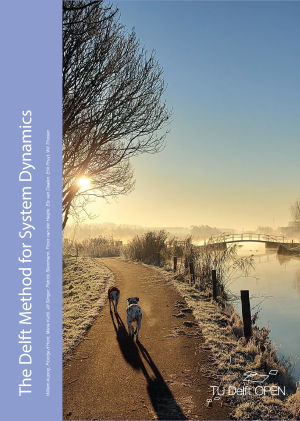The Delft Method for System Dynamics
Synopsis
The Delft Method for System Dynamics (SD) is a proven method for learning basic SD. The method focuses on learning by doing: first you try to work through an exercise, and if you do not understand something, then you can look up the theory. The book contains exercises on topics such as causal loop diagrams, delays, and when SD is an appropriate methodology. It also contains modelling exercises that show students how to build low to medium complexity models, and how to use these models for policy analysis. The theory chapters cover all phases of the modelling cycle: problem articulation, conceptualisation, formulation, evaluation (including validation and scenario analysis), and policy analysis. This book is intended for students and teachers in large or small System Dynamics courses, and for motivated students that want to learn SD at their own pace.
Downloads




